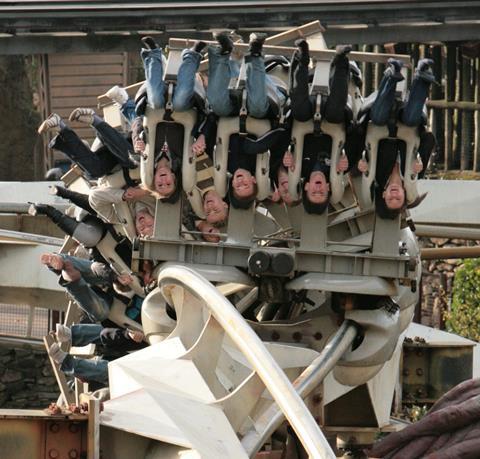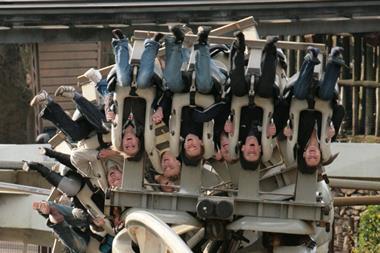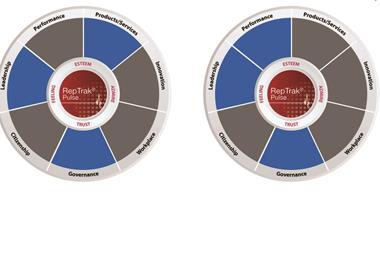In the second of a three-part series of intangible risk articles, European risk managers review how the theme park responded to an accident which could have caused its reputation to spiral

The ramifications of a bad accident will be doubly severe for a firm in the fun business, as Merlin Entertainment discovered to its cost at the beginning of June.
On what the company has admitted was the worst day in the history of Alton Towers, a well established theme park it operates in Staffordshire, UK, 16 visitors were injured in a rollercoaster crash.
The accident happened when two carriages on Alton Towers’ flagship Smiler ride – one empty and the other containing 16 passengers – crashed into one another. The worst injuries were suffered by two young women in the front of the carriage, who both had to have lower leg amputations. Their partners were badly injured too.
The theme park management’s immediate handling of the incident was ‘flaky’, says John Ludlow, director of consultancy Leading in Risk. It took Alton Towers’ management 11 minutes to contact the emergency medical services and nearly an hour to get in touch with the fire brigade.
It was hours before the crash victims were lifted out of the carriages.
Social media frenzy
Even worse, in terms of the park’s public reputation, the entire incident was broadcast to a shocked outside world via social media, powerfully illustrating how these relatively new tools can disseminate bad news before the company itself is even aware of the problem.
Airmic technical director Julia Graham says: “One of the first things we saw was people taking pictures on their smartphones. It wouldn’t have happened 10 years ago because they didn’t exist.”
In response, Alton Towers managers rushed out statements reassuring members of the public that the theme park’s other rides were safe.
From the immediate aftermath of the crash, however, Merlin gradually began to recover its position. Alton Towers itself was closed and Merlin’s regular web page was taken down and replaced with a temporary one that better reflected the tragic accident.
“They did a very good job from a social media point of view,” says Daniel Fletcher, technology, media and cyber underwriter at QBE Europe/
Next, the company moved quickly to accept full responsibility for the accident, defusing the risk of long-winded legal action that would constantly remind the public of the accident.
SR100LIVE: Intangible Risks Briefing
Share best practice on how to manage reputation risk, a threat cited as the number one intangible risk for companies
StrategicRISK is hosting an exclusive event – the Intangible Risks Briefing, conducted under Chatham House rules – for members of SR100LIVE.
Bringing together 100 leading UK and European risk minds, the briefing explores ways to identify, quantify and mitigate against risks to intangible assets, including protecting intellectual property, developing cyber risk management programmes and managing reputation risk – rated as the number one worry for risk managers in a recent Airmic survey (see pages 20-21).
The Intangible Risks Briefing, the first in a series of quarterly SR100LIVE events, has been structured to provide leading insurance and risk professionals with a strategic agenda and the opportunity to meet, network and share knowledge with their peers, as well as hearing from leading experts.
Each SR100LIVE event will be followed by a StrategicRISK Rapid Risk Response Briefing. Focusing on the news agenda, the event will bring together risk professionals to discuss how they can react, and are reacting, to emerging risks as events occur.
The news agenda sessions will be in two parts – a pre-scheduled topical news session and a breaking news session – and some of the topics may not be revealed until the days before each event.
For further information, please visit bit.ly/1JezLZS or contact Debbie Kidman: Debbie.kidman@nqsm.com
Fletcher believes that agreeing to fully compensate the victims was the right course of action, even though the cost for the company will be hefty.
“Merlin has done absolutely the right thing in terms of admitting liability for the accident,” says Ed Coke, director of consulting services at the Reputation Institute.
Ludlow adds that companies such as Merlin, which operate in the experience business, must be sensitive about how they handle events such as the rollercoaster crash. And Coke agrees that the company was right to “walk in the shoes of its customer”.
Coke suspects that Merlin had done a great deal of planning for just such a tragic event. “The overriding sense is that they are very much in touch with their customers,” he says.
He notes the public sympathy that Merlin’s clearly devastated chief executive, Nick Varney, gained when he appeared on television on the receiving end of a hostile interview by Sky TV presenter Kay Burley. “Nobody wants this kind of event to happen, but to plan for that eventuality shows savviness,” he says.
Merlin management’s response to this reputation-shredding incident can be compared with the response of another UK leisure operator – holiday company Thomas Cook – after the carbon monoxide poisoning of two children on one of its holidays in 2006. At the recently concluded court case into the event, the travel company was widely criticised for giving too much weight to its legal and insurance position.
“In too many crises the chief executive has gone to the lawyer and let the lawyer manage the crisis,” says Ludlow. “If your first reaction is to look after yourself or your company, you are almost always pouring petrol on the fire. You have to resist that instinct and look after the stakeholders and damn the consequences.”
Coke agrees. “A direct legal approach isn’t necessarily the best strategy to take with the media.”
Companies run the risk of falling into this trap if they do not have a well established relationship with their insurer, says Ludlow.
“If it’s the first time you have talked to your insurer, it’s all gone horribly wrong and it’s a big claim, then of course you are going to have a lawyer at the end of the phone,” he says.
Back to business
According to Merlin’s half-year results, visitor numbers were up by 200,000 at its theme parks across the world in the year ending June 2015, an increase of 0.9%.
The company has admitted, however, that despite a two-for-one promotional campaign, visitor numbers at Alton Towers are significantly reduced and also down at its other UK theme parks.
It will be a long time before Merlin can put the incident behind it. The company is still awaiting the results of the Health and Safety Executive’s investigation into the accident and for this reason it has declined to comment on how it handled events on the day.
Coke believes the outcome of the company’s response to the June disaster will have to be measured in months and even years, rather than weeks. “How people respond is what the general public – and the media –remember over time,” he says.




















No comments yet